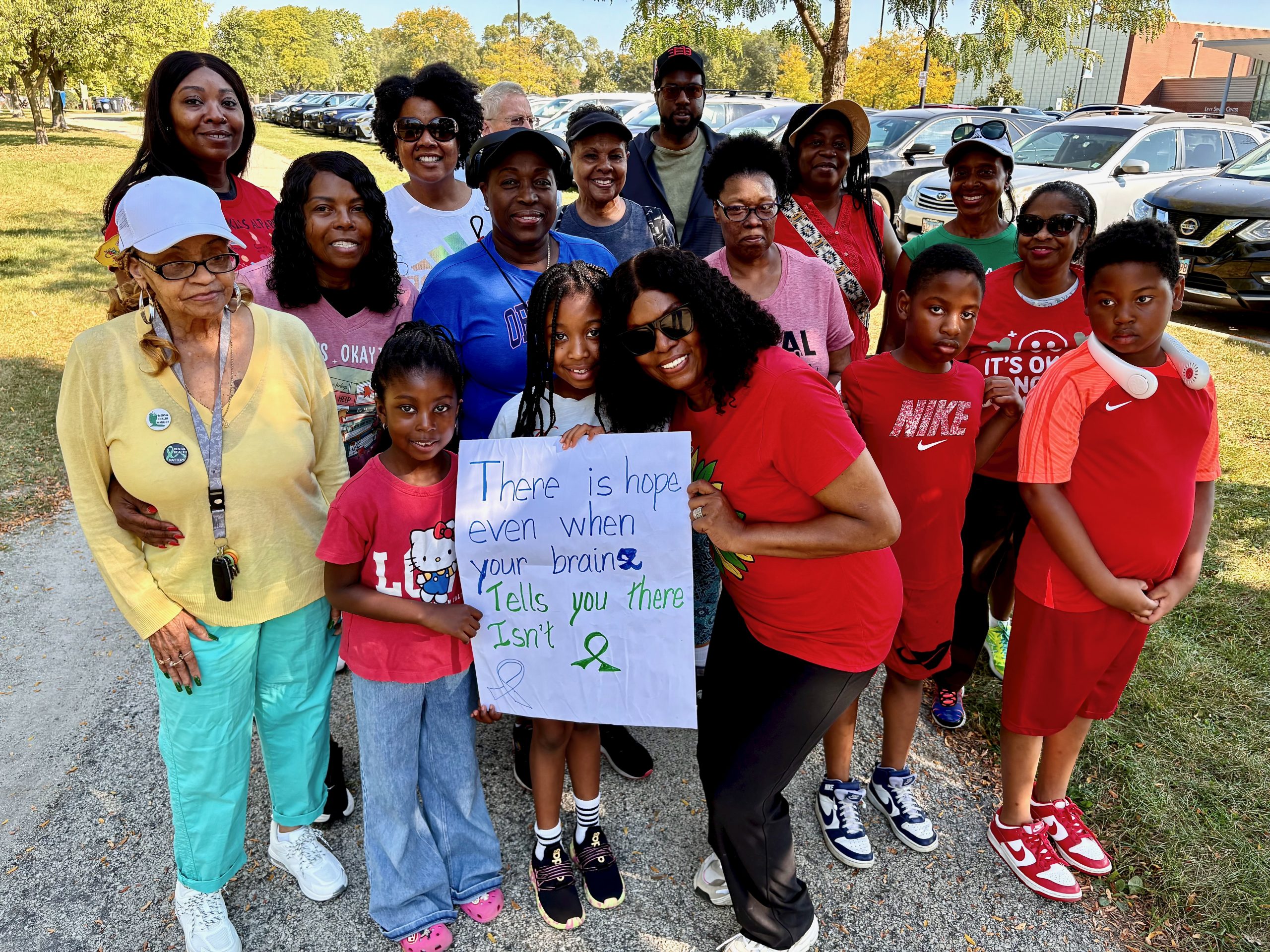Mental health awareness is a critical and often underdiscussed topic, especially in a world where the stigma surrounding mental illness continues to persist. One event making strides in this area is the annual NAMIWalks held in various communities across the United States. Recently, Evanston, a vibrant city in Illinois, hosted its own NAMIWalks event, underscoring the importance of collective action in promoting mental wellness.
The NAMIWalks, celebrated on the first Saturday of October, are part of a nationwide initiative by the National Alliance on Mental Illness (NAMI). This organization is known for its commitment to education, advocacy, and support for individuals affected by mental illness. The Evanston walk, organized for the second consecutive year by local resident Mamie Redus, took place at James Park track behind the Levy Senior Center. With about 50 participants of all ages, this year’s gathering was noted for its lively atmosphere, a testament to the growing interest and involvement in mental health issues within the community.
The event highlighted the personal stories of those involved. Mamie Redus’s own family members, such as her sister Dorothy McDonald and her son Rashad, shared their motivation for participating. Dorothy expressed her hope for the event’s growth, emphasizing its importance for mental wellness. Rashad’s comments encapsulated the sentiments of many participants: he noted that mental health should be a top priority both for individuals and the wider community. Their voices reflect a growing awareness that mental health is not just a personal issue; it’s a societal concern that requires collective effort.
Similarly, Vonetta Grant brought her twin sons to the event, underlining the immediate importance of mental health for younger generations. By discussing feelings and promoting open conversations at home, she emphasizes the need for proactive mental health support for children. This sentiment was echoed by Lisa Lester, who underscored the urgency of addressing mental health openly, highlighting the psychological ramifications when people internalize their struggles.
Walking side-by-side with friends, family, and even new acquaintances, participants celebrated not only their physical activity but also a shared mission. Many cited attending the walk last year as part of an ongoing commitment to mental health advocacy. This evolving community engagement indicates a shift toward a more open dialogue around mental health issues—something that cannot be underestimated.
Another participant, John Walstrum, couldn’t help but lend his support, motivated by the importance of mental health awareness. His perspective illustrates a common challenge faced by many: the invisibility of mental illness. The public often finds it difficult to empathize with what they cannot see, creating barriers to open discussions. Combating this stigma is paramount if we want to change how society perceives mental health.
Yolanda Johnson echoed this sentiment, urging everyone to advocate for increased awareness of mental health issues. She addressed the prevalent stigma that often deters individuals from seeking help, highlighting the collective responsibility to foster an environment where mental health is discussed openly. Her perspective emphasizes that, while the walk is a significant event, the work does not end there; promoting mental health awareness requires ongoing effort and advocacy.
As the walk concluded, participants came together to reflect on their experiences and what they can do moving forward. Joy Shaw-Horton articulated her reason for joining the event, voicing concern for the young people in Evanston and around the globe who are increasingly affected by mental health challenges. Her commitment illuminates a crucial point: community events like these serve as a platform for individuals to voice their concerns and advocate for necessary changes while creating spaces for collective healing.
### Community Impact
The importance of community engagement in mental health is reinforced by events like the NAMIWalks. Mental health conditions often feel isolating, and local support networks can significantly alleviate feelings of loneliness. Participants reported feelings of empowerment and solidarity, underscoring the role that community can play in fostering resilience and support systems.
Moreover, awareness events contribute to fundraising efforts that enable NAMI and similar organizations to continue their work. The financial resources generated through walks support various initiatives, from educational programs to patient advocacy, positively impacting many lives.
### Continuing the Conversation
While the Evanston NAMIWalks event serves as a reminder of the strides made in mental health awareness, it also highlights the ongoing need for conversation and understanding. Attitudes toward mental health continue to evolve, but significant barriers remain. The courage shown by participants to openly discuss these issues is inspiring and serves as a model for other communities.
### Conclusion
Evanston’s participation in NAMIWalks not only promotes awareness for mental health but also establishes a template for future events. By encouraging open dialog, fostering community, and advocating for those impacted by mental illness, we can continue to dismantle the stigma surrounding mental health. As more people join the cause, collectively we pave the way for a world where mental health support is viewed not just as an option, but as a fundamental right.
The success of events like the NAMIWalks in Evanston affirms a collective commitment to not only recognize mental health issues but to actively address them. With unwavering support and ongoing discussions, we can work towards a future where mental wellness is prioritized and accessible to all.
Source link










